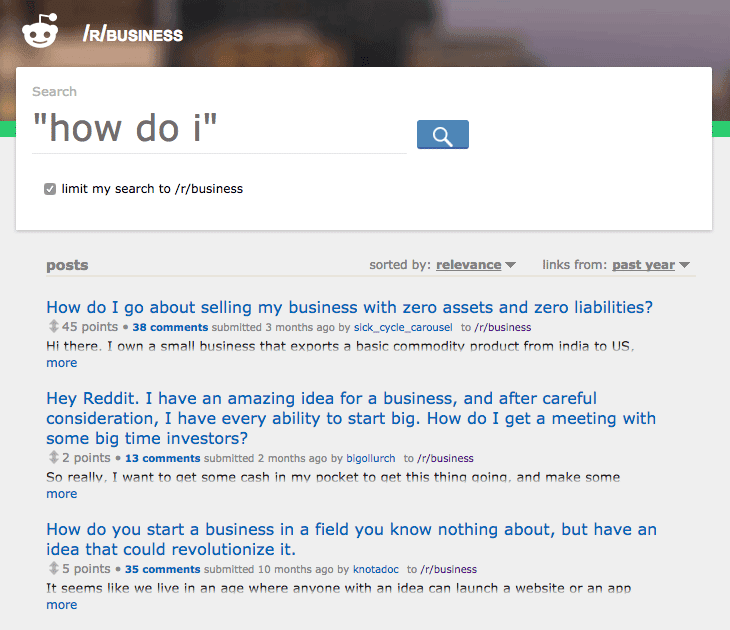Friday Q&A: How Can I Find Problems to Solve (To Come Up With Business Ideas)?
Every Friday, we’re answering your questions about business, startups, customer success and more.
Happy Friday!
This week’s question comes from Marius, who asks:

First, a caveat: I don’t need to tell anyone that building a business is really, really hard. That’s obvious.
But in my experience—and based on what I’ve learned from other founders I’ve spoken with—it’s even harder to build a business when you’re not scratching your own itch. Ultimately, it’s that passion for solving my own problem that keeps me going through the lowest of the lows, and I know that many other founders feel the same way.
Neil Patel acknowledged this, too, in our interview on the blog:
You have to find something you’re passionate about that solves real problems for people. Advice Monkey didn’t work out and it didn’t work out because I created it for the wrong reasons. I wasn’t passionate about it.
With that said, there are plenty of founders whose passion is simply for solving problems for people, whether they share those problems or not.
And if that’s your goal, I support you 100%, and I do think you have just as strong of a shot as someone filling their own hole.
In fact, many of the business ideas I’ve added to my own list over the years have come from other people sharing their frustrations with me about something in their lives (and not mine).
Here are two things I would do:
1) Start paying attention very deeply.
In customer development, perhaps the biggest mistake that I made in the beginning was letting my assumptions take priority over my ears.
Here’s what I mean: I’d go into interactions with assumptions about who the person was, what they wanted, what they didn’t want, and what their challenges and goals were. I’d listen to what they said, but I was only really listening for things that would either prove or disprove my assumptions, rather than listening to everything and trying to understand what was truly important.
For example, I’d assume that the customer wanted a live chat feature. After the conversation, I could only tell you whether that assumption was correct or incorrect. What I couldn’t tell you—until I started actively listening better—was that some of the offhand comments that the customer made were very clear indicators that perhaps chat wasn’t even that important to them compared to, say, a knowledge base.
When you begin to listen more actively, you begin to hear the little things that people complain about, often in the form of comments that seem like throwaways at the time, but actually indicate burning pains that need solving. These conversations, whether with prospects, co‑workers, friends or just about anyone else, can become huge sources of business ideas.
2) Search proactively for people looking for solutions.
Another thing that I’ve seen work for some—it’s a tactic that we sometimes use to source blog post ideas—is searching online communities for problems that people are facing.
Search, in quotes, for words and phrases that indicate that the poster is frustrated by something or looking to solve a problem:
- “How do I”
- “How do you”
- “Sucks”
- “Can’t seem to”
Here’s an example:

You can get great ideas by running searches like this on reddit, Twitter, or just about any community where a target market might congregate online.
I’m also very curious to hear what other readers have done here. Let me know in the comments!